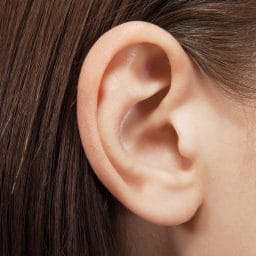Treating Hearing Loss with Surgery

There are two main types of hearing loss: conductive and sensorineural. Conductive hearing loss is caused by problems in the middle ear and outer ear, while sensorineural hearing loss is the result of inner ear problems. Sensorineural hearing loss is often referred to as nerve deafness and is usually treatable only with hearing aids. Conductive…
Missouri Humidity and Hearing Aids – Part 2
By Heather Meyer Unless you want to move, what can a hearing aid wearer do to maintain hearing aids in the humid climate of Missouri? 1. Protect the aids from situations where moisture is likely to be present: If possible, avoid wearing the hearing aid in wet, humid or steamy conditions or during strenuous exercise….
Communication Disorders in Older Adults
During May Is Better Hearing & Speech Month, Midwest ENT Centre is spotlighting the importance of early detection and treatment for communication disorders in older Americans. Roughly 40 million Americans experience these disorders. Speech/language or swallowing disorders may result from medical conditions, such as oral cancer, stroke, Parkinson’s, or traumatic brain injury. Adults may also…
Spring Allergies
Spring is in the air, and so are billions of tiny pollens that trigger allergy symptoms in millions of people. This condition is called seasonal allergic rhinitis, commonly referred to as hay fever. Hay fever can affect your quality of life. It can lead to sinus infections, can disrupt your sleep and affect your ability…
What To Expect When Your Child Needs Hearing Aids
For children, the device generally consists of two parts: the hearing aid and the ear mold. The hearing aid contains all of the electronic parts (i.e. the microphone, amplifier, receiver, battery compartment). It generally has an earhook attached, which sits over the top of the ear and the hearing aid sits behind the ear. The…
How Do I Clean My Ears?
Help! My ears feel full and I want to clean them myself, but …… DO NOT PUT ANYTHING SMALLER THAN YOUR ELBOW IN YOUR EARS! Many people want to use q-tips or bobby pins to clean their ears when they feel full. Using a q-tip or anything like that can actually make the fullness worse,…
Communication Strategies For Telephone Use
Whether you are a hearing aid user or not, hearing on the telephone when you have a hearing loss can be very challenging. This often leads to misunderstanding and frustration with the caller or the inability to have a conversation on the telephone at all. Below are some strategies you can use that may help…
Can I Wear My Hearing Aids In The Rain?
Can I wear my hearing aids in the rain? This question is asked at almost every hearing aid fitting, especially as we start talking about how harmful moisture can be to hearing aids. Hearing aids are electronic devices and can certainly be damaged when moisture gets inside the case where the electronics are housed. Fortunately,…
Missouri Humidity and Hearing Aids – Part 1
We have already talked a little about how rain or dampness can affect the performance of hearing aids, but what about other sources of moisture? And why might a hearing aid have problems with moisture in the middle of February as well as in the middle of August? First a little lesson on the climate…
What Happens After a Failed Newborn Hearing Screening?
A diagnostic Auditory Brainstem Response (ABR) evaluation should be scheduled, immediately. An ABR is used to assess the auditory (hearing) nerve function and to estimate hearing levels. It is a physiological test that measures electrical impulses that are transmitted through nerves from our ears to the brainstem. What does the test involve? Electrodes are placed…
